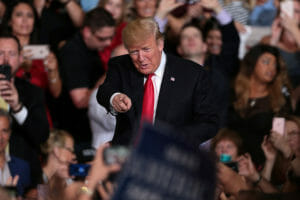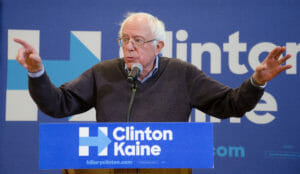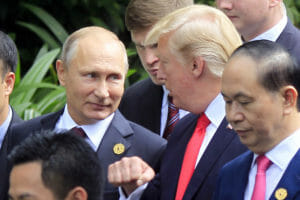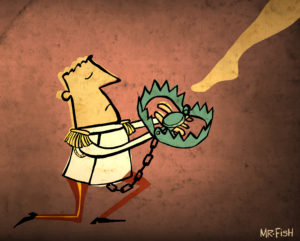What Is the Point of All This Spying?
Walter Kendall Myers, a former Foreign Service officer, has been sent to prison for life for espionage on behalf of Cuba. Did he knew anything at all that could remotely be termed "secret"?Walter Kendall Myers has been sent to prison for life for espionage on behalf of Cuba. Did he knew anything at all that could remotely be termed "secret?"
Walter Kendall Myers, a former Foreign Service officer, has been sent to prison for life, and his wife for a lesser term, for espionage on behalf of Cuba. Enthusiastic about the Cuban revolution, Myers for years passed on to the Cuban government information he had acquired as an official of the State Department’s intelligence unit, in which he was a specialist for European affairs. The sentencing judge was very stern, alleging that Myers hated the U.S. and asking why he had not defected to Cuba. What His Honor did not question was whether Myers knew anything at all that could remotely be termed “secret.”
In all probability he did not. I knew Myers slightly as an amiable and informed presence at Washington meetings and gatherings on European affairs, at embassies, foundations, universities. I thought well of him as someone who seemed relatively free of the usual clichés, who was almost as well informed on Western Europe as those of us under no governmental constraints. We read books and the newspapers, talked to our European colleagues, visited with European politicians. He had to read an inferior source of information: cables from our embassies. There were certainly some secrets about military matters, but persons versed in this sphere tell me that these were impossible to conceal from any acute analyst of the Pentagon budget or translator of the technical language of military journals.
Intelligence, after all, is not always so intelligent. In my one foray long ago into governmental service as a consultant to the National Security Council, in 1978, I proposed an inquiry into the possibility that the German and European movement against nuclear power plants would develop into large-scale protest against preparations for nuclear war in Europe. No one was interested, and very shortly thereafter the demonstrations began. Time passed and Ronald Reagan took office. He was shocked by the Europeans’ lack of gratitude at being covered by what was termed our nuclear umbrella and asked his CIA director, William Casey, to look into the matter.
Casey’s officers (some of the CIA European experts actually knew Europe) told him that the movement was not totally inspired or controlled by agents of the Soviet bloc, and had deep roots in Western European society. Casey’s response was to instruct his staff to prepare another report. He could not burden President Reagan with so obviously preposterous a conclusion.
I do not know what moved Myers to believe that the Cuban revolution was an exception to Rosa Luxemburg’s dictum that all revolutions fail but the last one. He was a descendant of the earnest social Protestantism of earlier phases of American history, and perhaps he thought that Fidel Castro was succeeding where William Jennings Bryan had failed.
Actually, he would have been of far more help to Castro had he pretended to be a Cuban agent and worked closely with the CIA. He could have given the Agency material far more reliable than the fictions about the imminent collapse of the regime fabricated for decades by Cuban exiles.
Come to think of it, even that might not have worked. For some years I was very friendly with the leaders of the Italian Communist Party. One thing about them surprised me — how many of them were Catholic, or very close to the church. At parties at the home of the party leader’s adviser on church affairs, I regularly met senior figures of the church — despite the fact that their host had been excommunicated for his political sympathies very early in the Cold War. The one person in Washington who knew this was a government official of my acquaintance, and he wearily advised me that there was little use in insisting in my writings and occasional advice to the more adventurous members of Congress who occasionally consulted me. “They won’t believe you; they don’t listen to me and I spent years in Italy. If you put it in The Nation, they will interpret that as ipso facto evidence that the Communist Party planted the story to deceive us.”
No doubt, the frauds now being perpetrated by the experts on terror and Islamism (like the earlier distortions of the Cold War) have their uses: They legitimate policies which would be pursued under any circumstances. To suppose that the government agencies which welcome this sort of ideological reinforcement know more than the rest of us is to make a very large mistake. Castro, in secret, gave his American friend Myers medals. He would have done better to encourage him to retire from the Foreign Service and lobby for the Cuban tourist industry.
Your support matters…Independent journalism is under threat and overshadowed by heavily funded mainstream media.
You can help level the playing field. Become a member.
Your tax-deductible contribution keeps us digging beneath the headlines to give you thought-provoking, investigative reporting and analysis that unearths what's really happening- without compromise.
Give today to support our courageous, independent journalists.







You need to be a supporter to comment.
There are currently no responses to this article.
Be the first to respond.